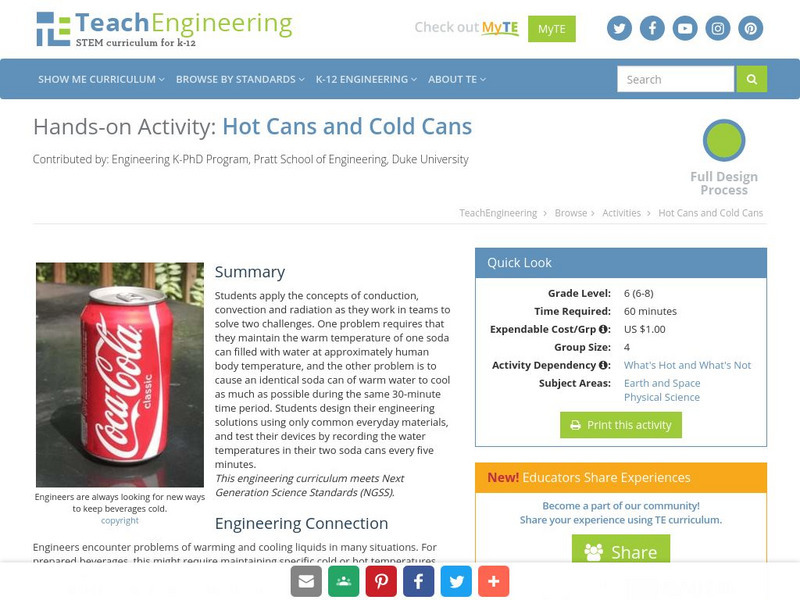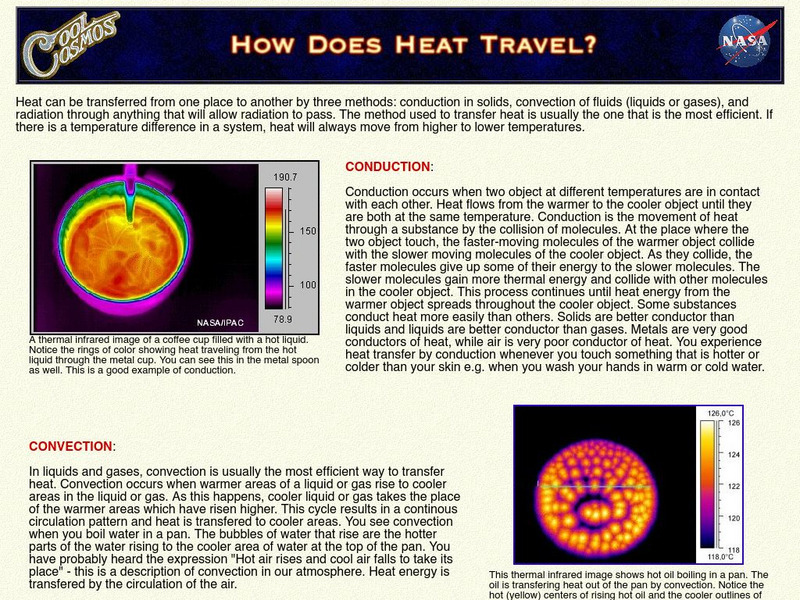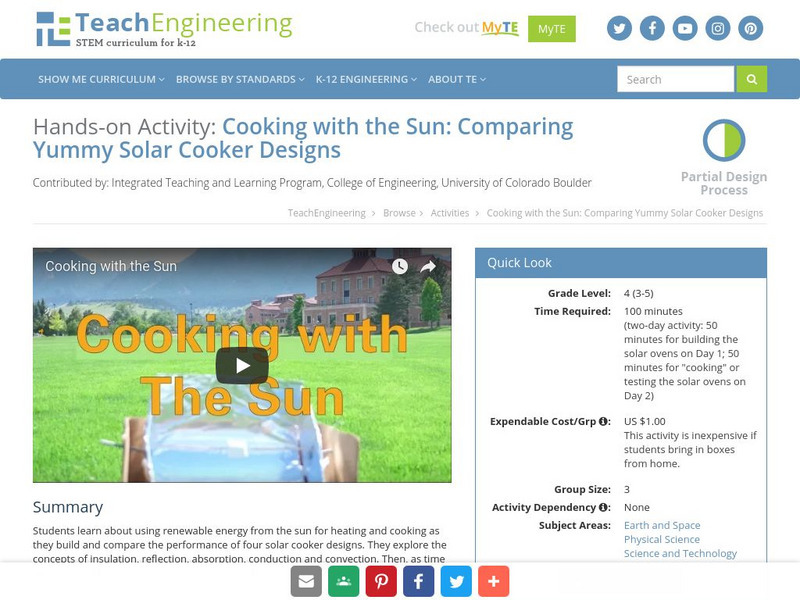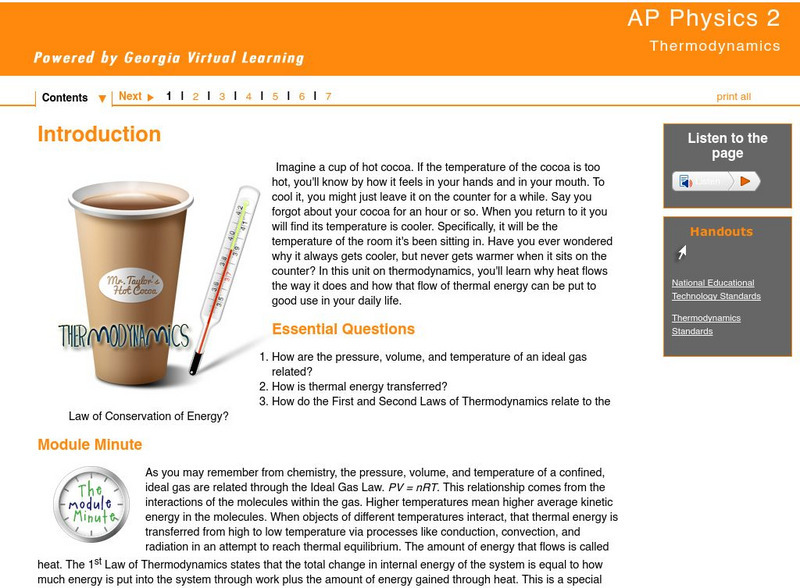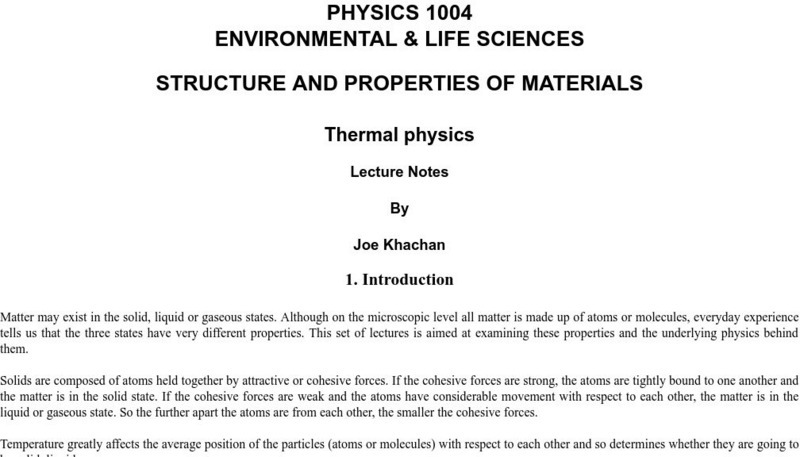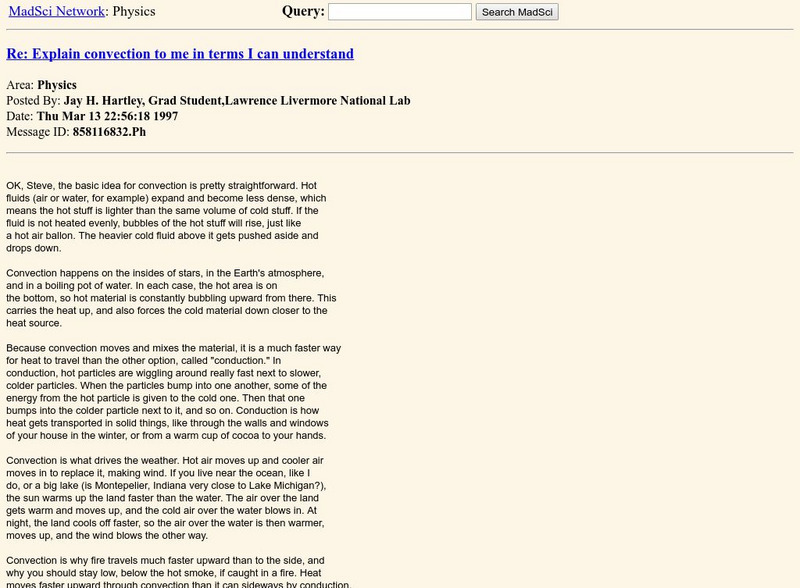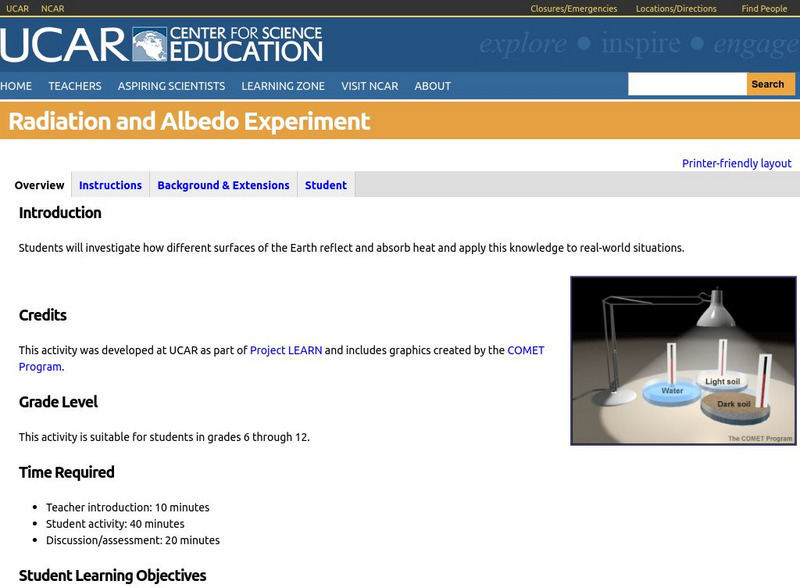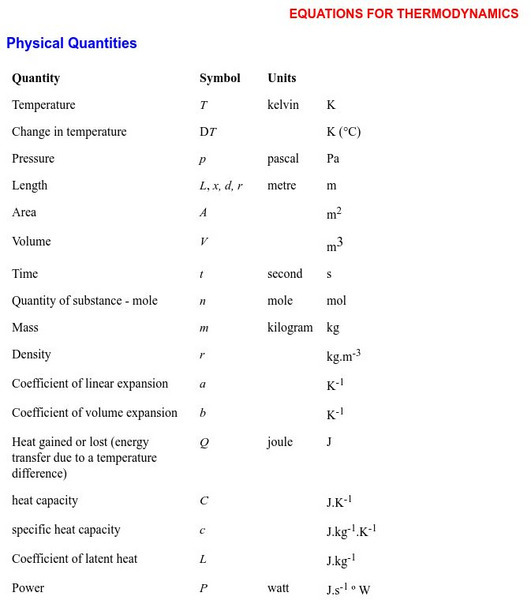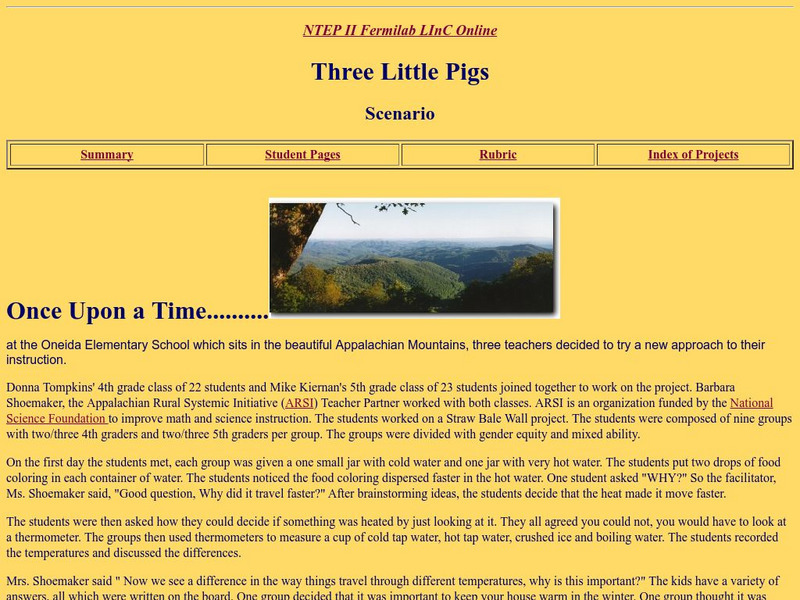TeachEngineering
Teach Engineering: How Hot Is It?
Students learn about the nature of thermal energy, temperature and how materials store thermal energy. They discuss the difference between conduction, convection and radiation of thermal energy, and complete activities in which they...
Alabama Learning Exchange
Alex: Popping Hot
In this instructional activity students will discover the different forms of heat transfer such as conduction, convection, and radiation and that these forms can be demonstrated by popping popcorn. Students will learn the health benefits...
Georgia State University
Georgia State University: Hyper Physics: Temperature Regulation of the Human Body
Discusses the methods the human body uses to regulate body temperature. Includes links to the four external heat transfer mechanisms (radiation, conduction, convection, and evaporation of perspiration).
TeachEngineering
Teach Engineering: Hot Cans and Cold Cans
Students apply the concepts of conduction, convection, and radiation as they work in teams to solve two problems. One problem requires that they maintain the warm temperature of one soda can filled with water at approximately body...
Khan Academy
Khan Academy: Charge Transfer Processes
In this 4-question quiz, predict how charge gets transferred by conduction between two objects.
Other
Characteristics of Energy and Matter
A lengthy page from the Fundamentals of Physical Geography site. Energy is distinguished from matter, and the different forms of energy are identified and discussed. Four types of heat transfer (convection, advection, conduction,...
University Corporation for Atmospheric Research
Ucar: Introduction to the Atmosphere
A detailed overview of the Earth's atmosphere, with explanations about atmospheric properties, the structure of the atmosphere, its four layers, atmospheric processes, energy heat transfer, conduction and convection, and radiation. All...
Other
Mansfield Connecticut: Convection, Conduction, and Radiation
Learn about Convection, Conduction and Radiation then play a game to assess what you learned.
California Institute of Technology
Nasa: Cool Cosmos: How Does Heat Travel?
An explanation, with infrared images, of how heat is transferred from one object to another.
University of Sydney (Australia)
Thermal Physics Module/heat Transfer 1 [Pdf]
The first of two pages discussing the different forms of thermal energy transfer. Equations expressing the rate of energy transfer by each of the methods are provided and discussed.
TeachEngineering
Teach Engineering: Cooking With the Sun
Students learn about using renewable energy from the Sun for heating and cooking as they build and compare the performance of four solar cooker designs. They explore the concepts of insulation, reflection, absorption, conduction and...
TeachEngineering
Teach Engineering: Solar Water Heater
Student teams design and build solar water heating devices that mimic those used in residences to capture energy in the form of solar radiation and convert it to thermal energy. This thermal energy is next transferred to water (to be...
Georgia Department of Education
Ga Virtual Learning: Thermodynamics
In this interactive unit on thermodynamics, you'll learn why heat flows the way it does and how that flow of thermal energy can be put to good use in your daily life.
Other
Applied Thermodynamics: Heat Transfer
Heat transfer, rates of heat exchange,conduction, radiation and convection are defined and discussed at this site from Applied Thermodynamics. Well illustrated.
TeachEngineering
Teach Engineering: Keep It Hot!
Student teams design insulated beverage bottles in this challenge, and test them to determine which materials work best at insulating hot water to keep it warm for as long as possible.
University of Sydney (Australia)
University of Sydney: Structure and Properties of Materials/thermal Physics
An exhaustive set of "lecture notes" on various topics in thermal physics (including thermal expansion). Explanations are well done and more interesting than most. Includes both a mathematical and conceptual treatment of topics. Humor,...
MadSci Network
The Mad Scientist Network: Physics
A page from the question and answer section of this useful site. The page responds to the user question: "Explain convection to me in terms I can understand." An excellent discussion of the method of convection.
Curated OER
Colorado State Univ.: Heat Transfer Resistance Modeling
This site from the Colorado State University discusses the tranfer of heat by conduction and convection. Discussion centers around the application of these two heat transfer mechanisms to engines. The variables that effect the resistance...
Other
Mister teacher.com: Thermal Energy
An explanation, supported by pictures and animation, of how thermal energy transfers between objects.
Science Buddies
Science Buddies: What's the Fastest Way to Cool a Soda?
When you are craving an ice cold drink of soda, the last thing you want is to be stuck with a bunch of soda cans at room temperature. This fun science experiment sends you on a discovery to find the fastest way to cool soda with...
Curated OER
Fund. Of Phys. Geography/energy, Temperature, and Heat
A page describing (in part) the distinction between energy, temperature and heat. Includes graphic illustrating the quantity of energy needed to transform water between its various states. Methods of thermal energy transfer (convection,...
University Corporation for Atmospheric Research
Ucar: Atmospheric Processes Radiation
This site provides background information, images, and an activity to help students understand the concept of radiation. Includes both the student pages and a teachers guide with lesson plan.
University of Sydney (Australia)
Equations for Thermodynamics
An exhaustive list of equations and formulas which are commonly used in thermal physics (including equations for triple point). Equations are organized according to category. Meaning of the symbols is clearly stated.
Other
L in C Online: Three Little Pigs
An energy transfer project for junior high school students is presented and described. Takes the form of a teacher lesson plan. Students may be able to extract some ideas for a project or experiment.



